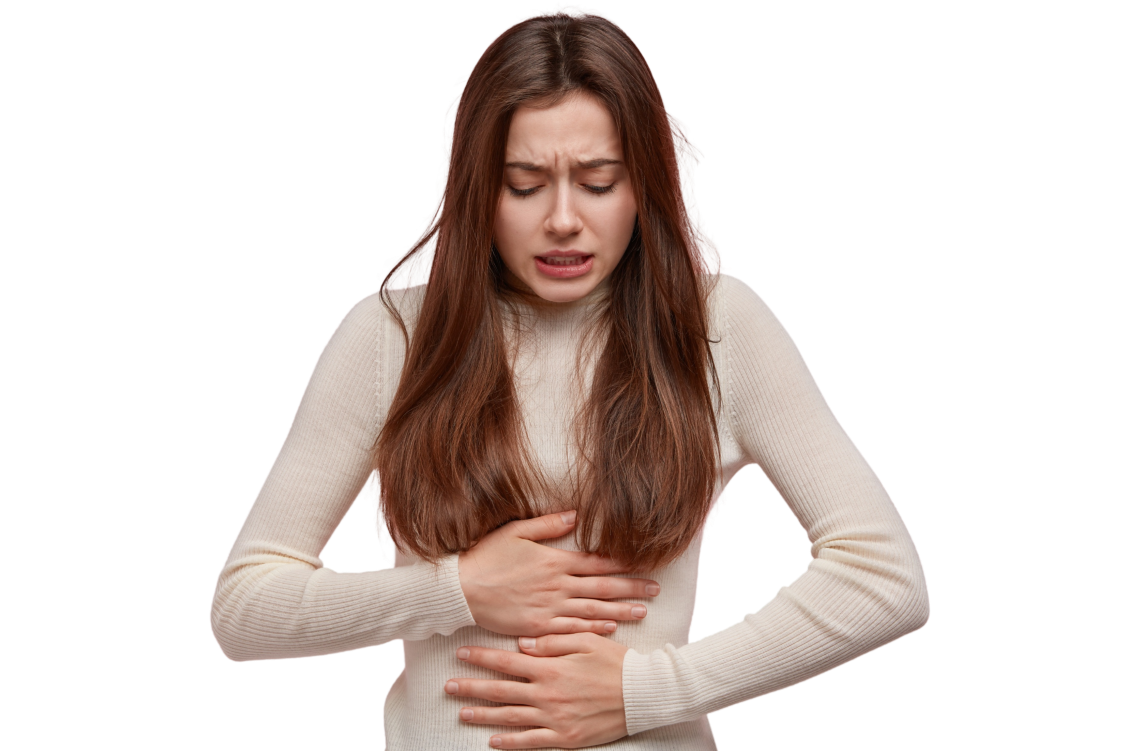Acupuncture for PCOS
You can manage PCOS (Polycystic Ovarian Syndrome) through diet and lifestyle changes. But there’s more to it than just “lose weight.” Let’s break this down together.


PCOS is not a reproductive disease.
In fact, PCOS is a metabolic disease that shows up in your reproductive system.
PCOS creates a fundamental imbalance in your reproductive hormones leading to too much testosterone, and not enough estrogen and progesterone (thank you, testosterone, for the excessive facial hair growth).
The imbalance is what causes your infertility. But PCOS also increases your risk of miscarriage, cardiovascular disease and diabetes (gestational and type 2).
While the exact cause of PCOS is unknown, there are contributing factors such as:
- Insulin resistance
- High testosterone
- Inflammation
- Genetics
Okay, so we can’t change our genetics, let’s tackle the others by:
- Balancing blood sugar
- Supporting hormone health
- Eating an anti-inflammatory diet
- Reducing stress levels
- Improving gut health
All of which will support overall health and weight management.
HOW WE CAN HELP
Acupuncture for PCOS in Toronto and the GTA
How can Traditional Chinese Medicine and acupuncture help with PCOS (Polycystic Ovarian Syndrome)?
Acupuncture has been recognized for its ability to regulate hormonal imbalances and as such, is a safe and effective treatment to PCOS.
Acupuncture can also reduce your cortisol (stress hormone) levels and thus, can also help you with the stress of managing your condition.
Here’s how acupuncture can treat women with PCOS:
- Increase blood flow to the ovaries
- Reduction of ovarian volume and the number of ovarian cysts
- Control hyperglycemia, decrease in blood glucose and insulin levels, reduction of cortisol levels and possible weight loss
- Menstrual frequency improvement
- Stimulation of ovulation
- Decrease in circulating androgens in the body
- Normalization of estrogen activity
- Reduce/eliminate hot flashes by influencing the body's thermoregulatory mechanisms, helping to reduce the frequency and intensity of hot flashes
- improve likelihood of a successful conception and healthy pregnancy
The purpose of the needles is to stimulate points to promote the body's natural healing processes.
The post-acupuncture experience can be subtle yet noticeable, including feeling more relaxed, better sleep, improved ability to handle stress, and feeling more energized.
Ready to Get Started?
Click to book your acupuncture session for PCOS support and relief.
Have questions? Arrange for a No-cost 10-minute Discovery Call and speak directly with Eileen to learn more.
Nutrition for PCOS in Toronto and the GTA
The key to managing PCOS through dietary changes is a blood-sugar balancing anti-inflammatory diet.
So, what does this mean?
- Blood sugar balancing doesn’t mean just don’t eat sugar or carbs. It is about having the right balance of macronutrients so you do not spike insulin.
- An anti-inflammatory food diet includes foods rich in nutrients needed to maintain a healthy metabolism and a hormonal system.
- Gut health is key. A healthy gut is key to an anti-inflammatory diet as well as blood sugar balance and hormone health.
- Liver health is also essential! The liver plays an essential role in managing hormonal balance.
- Don’t forget stress! Stress and cortisol levels are a significant contributor to PCOS symptoms. Managing stress through dietary and lifestyle changes is included in our health protocols.
At Essential Balance our comprehensive Nutrition Support for PCOS includes:
- A balancing blood sugar diet - without cutting out all carbs
- Recommended foods to support hormone health
- A summary on an anti-inflammatory diet
- A personalized gut healing protocol to reduce inflammation
- Recommended targeted nutrition supplements for insulin resistance, inflammation, and overall hormone health
- Suggesting herbal supplements to aid with PCOS symptoms such as amenorrhea, sleep issues, anxiety, and mood swings
- Fertility support – if that’s your goal!
And yes, we can offer nutrition support and exercise tips on natural weight loss.
Nutrition Consulting
Click to book your nutrition session for PCOS relief.
Have questions? Book a Free 10-minute Discovery Call with Kirsten or Eileen and get your questions answered!
Your Questions Answered
As mentioned, contrary to popular belief, PCOS is not a reproductive disease.
In fact, PCOS is a metabolic disease that shows up in your reproductive system. PCOS creates a fundamental imbalance in your reproductive hormones leading to too much testosterone, and not enough estrogen and progesterone.
Estrogen, progesterone, luteinizing hormone and testosterone are the main fertility hormones. You are probably familiar with these. You secrete estrogen in the first half of your cycle, secrete luteinizing hormone to ovulate, and then secrete progesterone in the second half of your cycle.
As a woman, you secrete a very small amount of testosterone, that is what creates your sex drive, and initiates the growth of follicles to start developing.
Your body makes insulin in response to a rise in blood sugar levels. Insulin is the way that your body gets that sugar out of the bloodstream and into the cells. Insulin, in normal levels, is good. But when too much insulin is generated, it overtakes the testosterone production system and cranks it up really, really high.
It also stimulates the production of luteinizing hormone at the wrong time.
The high levels of testosterone hyper-stimulates follicle production. But it also interferes with estrogen production, which means your follicle growth stalls out. Even worse, the luteinizing hormone closes off the nutrition portals to your developing follicles, so they don’t get the nourishment they need to grow either.
And the rest of the cells in your body develop insulin resistance because they don’t need all that extra energy (which gets stored as belly fat, oh joy.)
In some other cases of PCOS, women don’t have the above signs, but they tend to be hypoglycemic (low blood sugar) and have just enough testosterone and luteinizing hormone imbalance to keep follicles from developing properly.
The result? Your fertility hormones are totally out of sync, and your follicles don’t develop. Or, if you do ovulate because the egg has been bathing in testosterone, it isn’t a healthy egg so it cannot sustain further development.
The four hormones — insulin, testosterone, estrogen and progesterone should be in balance for healthy eggs. The label of “Poly-Cystic Ovarian Syndrome” is really a misnomer as cysts are not the problem.
Fixing the insulin issue is fundamental to fixing the fertility issue.
As an aside, egg quality is why many women with PCOS may be poor responders to medications which stimulate ovulation; also they have a greater likelihood of failed IVF cycles.
More eggs isn’t better if the eggs haven’t developed in a healthy hormonal environment. It is also why the rate of miscarriage is higher. Blood-sugar medication can help because it addresses the real issue: insulin hypersensitivity.
The good news is through medication, acupuncture, dietary and lifestyle changes you can balance blood sugar, regulate hormones and help healthy eggs develop to increase your chances of conceiving.
Talk to your doctor about medication, we can help with the rest!
While exercise is important for everyone’s overall health, exercise is even more important for women with PCOS.
Acupuncture in combination with physical exercise can lower circulating testosterone levels and increase ovulation and menstrual frequency.


